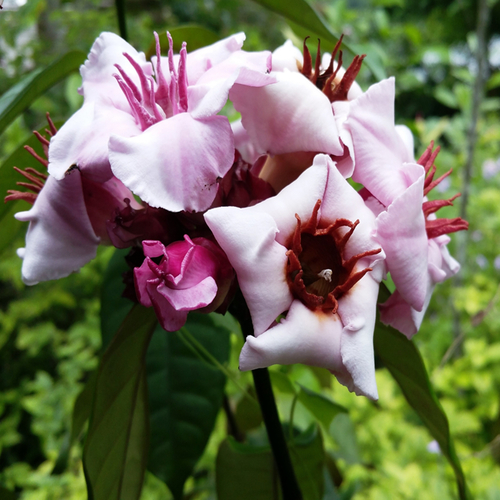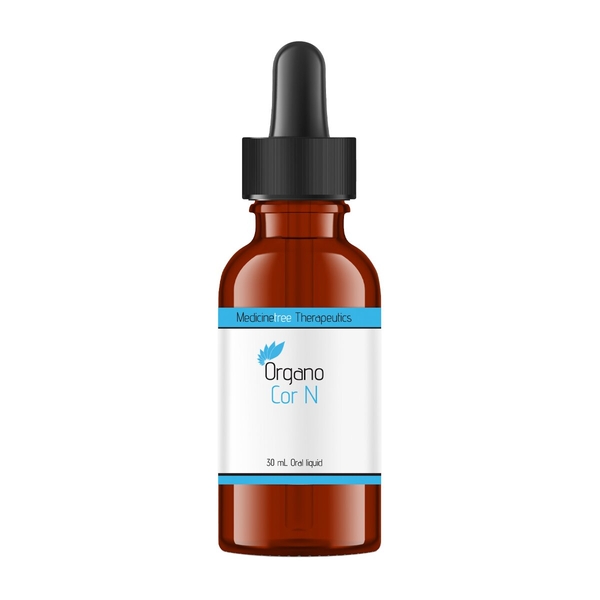
Background
Despite serious safety concerns, people take strophanthus for diabetes, heart problems, and high blood pressure, but there is no good scientific evidence to support these uses.
Safety Safety definitions
Special Precautions & Warnings:
Pregnancy and breast-feeding: It's UNSAFE to use strophanthus if you are pregnant. It might make the uterus contract, and this could cause a miscarriage. It's also UNSAFE to use strophanthus if you are breast-feeding.Heart conditions: Strophanthus may cause irregular heartbeat. Don't use strophanthus if you have a heart condition, without the direct supervision of a healthcare provider.
Effectiveness
- "Hardening of the arteries" (arteriosclerosis).
- Heart problems.
- High blood pressure.
- Other conditions.
Dosing & administration
Interactions with pharmaceuticals
Digoxin (Lanoxin)
Interaction Rating=Moderate Be cautious with this combination.
Digoxin (Lanoxin) helps the heart beat more strongly. Strophanthus also seems to affect the heart. Taking strophanthus along with digoxin can increase the effects of digoxin and increase the risk of side effects. Do not take strophanthus if you are taking digoxin (Lanoxin) without talking to your healthcare professional.
Medications for inflammation (Corticosteroids)
Interaction Rating=Moderate Be cautious with this combination.
Strophanthus might affect the heart. Some medications for inflammation can decrease potassium in the body. Low potassium levels can also affect the heart and increase the risk of side effects from strophanthus.
Some medications for inflammation include dexamethasone (Decadron), hydrocortisone (Cortef), methylprednisolone (Medrol), prednisone (Deltasone), and others.
Quinidine
Interaction Rating=Major Do not take this combination.
Strophanthus can affect the heart. Quinidine can also affect the heart. Taking quinidine along with strophanthus might cause serious heart problems.
Quinine
Interaction Rating=Major Do not take this combination.
Strophanthus can affect the heart. Quinine can also affect the heart. Taking quinine along with strophanthus might cause serious heart problems.
Stimulant laxatives
Interaction Rating=Moderate Be cautious with this combination.
Strophanthus can affect the heart. The heart uses potassium. Laxatives called stimulant laxatives can decrease potassium levels in the body. Low potassium levels can increase the chance of side effects from strophanthus.
Some stimulant laxatives include bisacodyl (Correctol, Dulcolax), cascara, castor oil (Purge), senna (Senokot), and others.
Water pills (Diuretic drugs)
Interaction Rating=Moderate Be cautious with this combination.
Strophanthus might affect the heart. "Water pills" can decrease potassium in the body. Low potassium levels can also affect the heart and increase the risk of side effects from strophanthus.
Some "water pills" that can deplete potassium include chlorothiazide (Diuril), chlorthalidone (Thalitone), furosemide (Lasix), hydrochlorothiazide (HCTZ, HydroDiuril, Microzide), and others.
Interactions with herbs & supplements
Cinchona: Using cinchona with strophanthus may increase the risk of heart problems.
Ephedra (Ma huang): Using ephedra with strophanthus may increase the risk of heart problems.
Herbs that contain cardiac glycosides: Strophanthus contains chemicals called cardiac glycosides, which are similar to the prescription drug digoxin. Cardiac glycosides can cause the body to lose too much potassium, and this can harm the heart. Using strophanthus with other herbs that also contain cardiac glycosides might increase the risk of heart damage. Herbs that contain cardiac glycosides include black hellebore, Canadian hemp roots, digitalis leaf, hedge mustard, figwort, lily-of-the-valley roots, motherwort, oleander leaf, pheasant's eye plant, pleurisy root, squill bulb leaf scales, star of Bethlehem, and uzara. Avoid using strophanthus with any of these.
Horsetail: Strophanthus contains chemicals called cardiac glycosides. Cardiac glycosides can cause the body to lose too much potassium, and this can harm the heart. Horsetail increases the production of urine (acts as a diuretic), and this can cause the body to lose potassium. There is a concern that using horsetail with cardiac glycoside-containing herbs such as strophanthus increases the risk of losing too much potassium and increases the risk of heart damage. Avoid using strophanthus with horsetail.
Licorice: Strophanthus contains chemicals called cardiac glycosides. Cardiac glycosides can cause the body to lose too much potassium, and this can harm the heart. Licorice also causes the body to lose potassium. There is a concern that using licorice with cardiac glycoside-containing herbs such as strophanthus increases the risk of losing too much potassium and increases the risk of heart damage. Avoid using strophanthus with licorice.
Stimulant laxative herbs: Strophanthus contains cardiac glycosides, which are chemicals that can affect the heart. Using stimulant laxative herbs with an herb that contains cardiac glycosides, such as strophanthus, increases the risk of making potassium levels drop so low that there are very serious health effects. Stimulant laxative herbs include aloe, alder buckthorn, black root, blue flag, butternut bark, colocynth, European buckthorn, fo ti, gamboge, gossypol, greater bindweed, jalap, manna, Mexican scammony root, rhubarb, senna, and yellow dock.
Interactions with foods
Action
Products
View all products- Strophanthus hispidus
- Crataegus monogyna (Hawthorn)
- Lycopus virginicus
- Porcine aorta
- Porcine heart
- Porcine pericardium
- Porcine mitral valve
- Porcine coronary vein
- Porcine heart ventricles
- Adonis vernalis
- Selenicereus grandiflorus
- Cytisus scoparius
- Phosphorus
- Porcine artery
- Cholesterol





